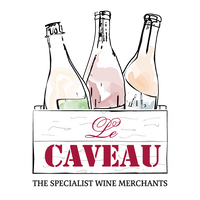Big Salt comes from organic 30 year-old dry-farmed vines overlooking the ocean, exposed to extreme wind conditions. Riesling, Muscat and Gewurztraminer are co-fermented in stainless steel with no additions except a small amount of SO2. a combination of grit and saltiness that totally comes across in the wine – along with floral, honeysuckle and tropical fruit notes balanced by chalky texture and pebbly minerality. Like a Hawaiian garden planted in the middle of Germany’s Pfalz region. Aromatic but not sweet. A supremely satisfying sipper, and excellent food wine to boot. A must try with Sushi/Sashimi or Tuna Poké.
OVUM WINES, JOHN HOUSE & KSENIJA KOSTIC, Newburg
John House and Ksenija Kostic both have day jobs so they're able to take risks with Ovum. For example, they focus solely on whites rather than more lucrative reds. "They are unveiled, so raw," explains House. "You can't hide anything. I think whites are a better conduit for terroir (the expression of a vineyard site) than red wines."
Where a larger winery might ferment whites quickly in large, temperature-controlled steel tanks for a consistency of style from year to year, the goal at Ovum is to reflect the vintage, no matter what it brings. So the techniques are old-school: House and Kostic allow fermentation to happen spontaneously and linger for months, in neutral (old) oak barrels. The resulting wines are richly textured and deeply layered.
The name "Ovum" is a reference to the perfect natural shape of the egg, and the life cycle a wine takes, from grape to bottle. And, yes, for all you wine geeks out there, these guys do have one of those au courant egg-shaped concrete fermenters. "There is a special convection that occurs in the concrete egg during fermentation that constantly stirs the lees," House explains.
"The natural energy and heat generated by the yeasts make the sediment move in a circular fashion, making, in my experience, wines on the most mineral end of the spectrum."
House and Kostic have made it their mission to find the state's best old plantings of overlooked varieties like Muscat and Gewürztraminer. Their explorations have led them to highlight different vineyards, often in unexpected regions, with each vintage. "There are parts of southern Oregon we find very compelling," says House. "I just got an e-mail from someone who has plantings of Riesling, farmed organically in the Umpqua Valley since 1979. Where has this fruit been going until now? It has been blended."




